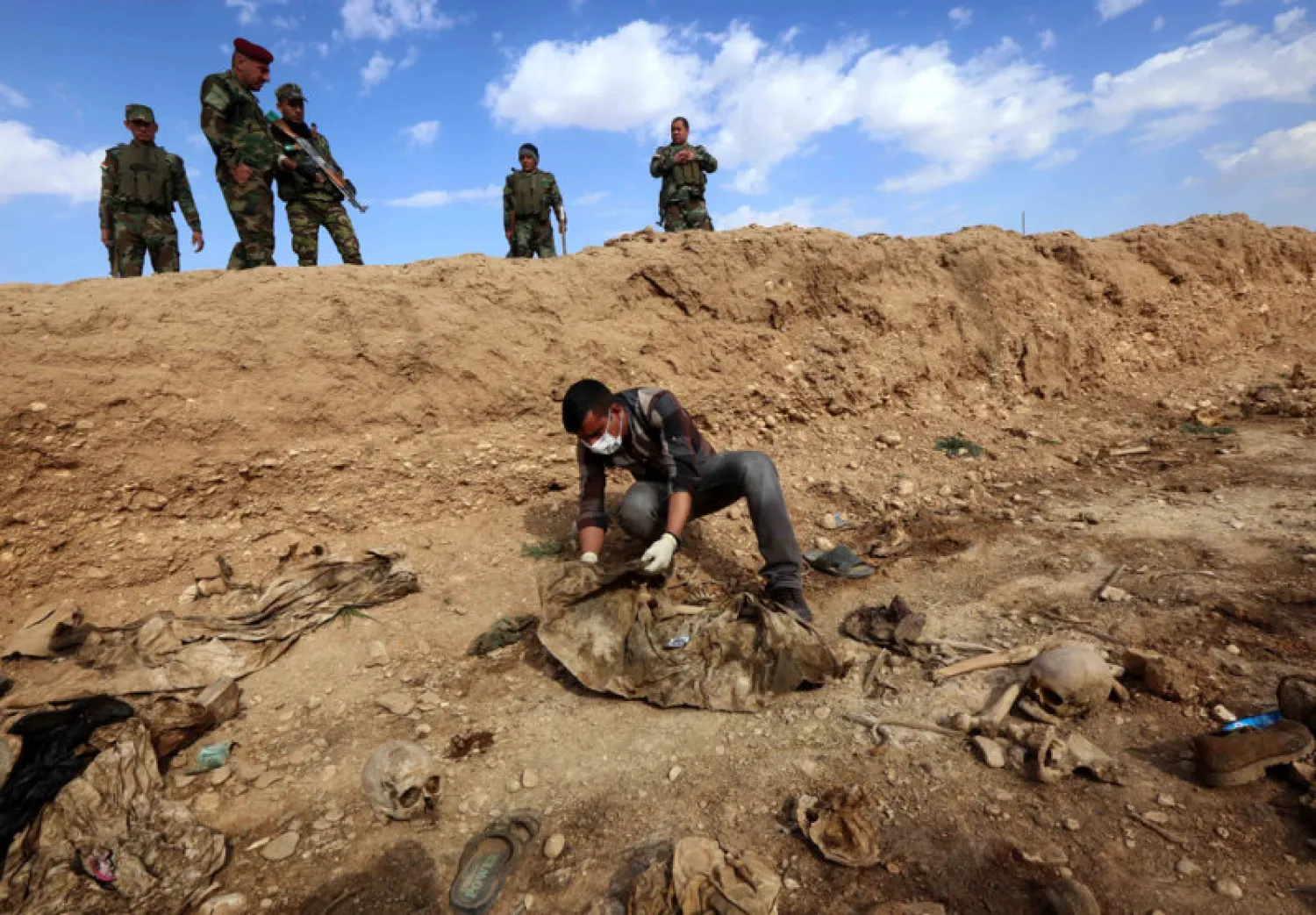Iraqi officials said they found another mass grave in the northern Sinjar region on Wednesday containing the bodies of dozens of members of the Yazidi minority killed by the ISIS terrorist group.
"The mass grave contains the bodies of 73 people, men, women and children executed by ISIS when they controlled the region," local official Chokor Melhem Elias told AFP.
He said Iraqi security forces made the latest discovery in the Rambussi area near the town of Qahtaniyya.
In 2014, ISIS killed thousands of Yazidis in Sinjar and kidnapped thousands of the community's women and girls as sex slaves.
The United Nations estimates 3,000 of them are still being held captive.
Kurdish fighters backed by the US-led coalition recaptured Sinjar from ISIS in November 2015 before Iraqi security forces took control of the region in October.
Also, 10 days ago, mass graves containing at least 400 bodies were found near Hawija, an Iraqi city that was occupied by ISIS fighters until last month.
Kirkuk province's governor, Rakan Said, said they were found at an airbase just outside the city.
Some of the victims were in civilian clothes but others were wearing the jumpsuits that ISIS used to dress people who were condemned to death.
As government troops have advanced across Iraq, they have discovered dozens of mass graves in areas that fell under the jihadists' brutal rule. Last year the Associated Press published a survey of mass graves that identified 72 sites. They could contain from 5,200 to more than 15,000 bodies, the news agency said.









